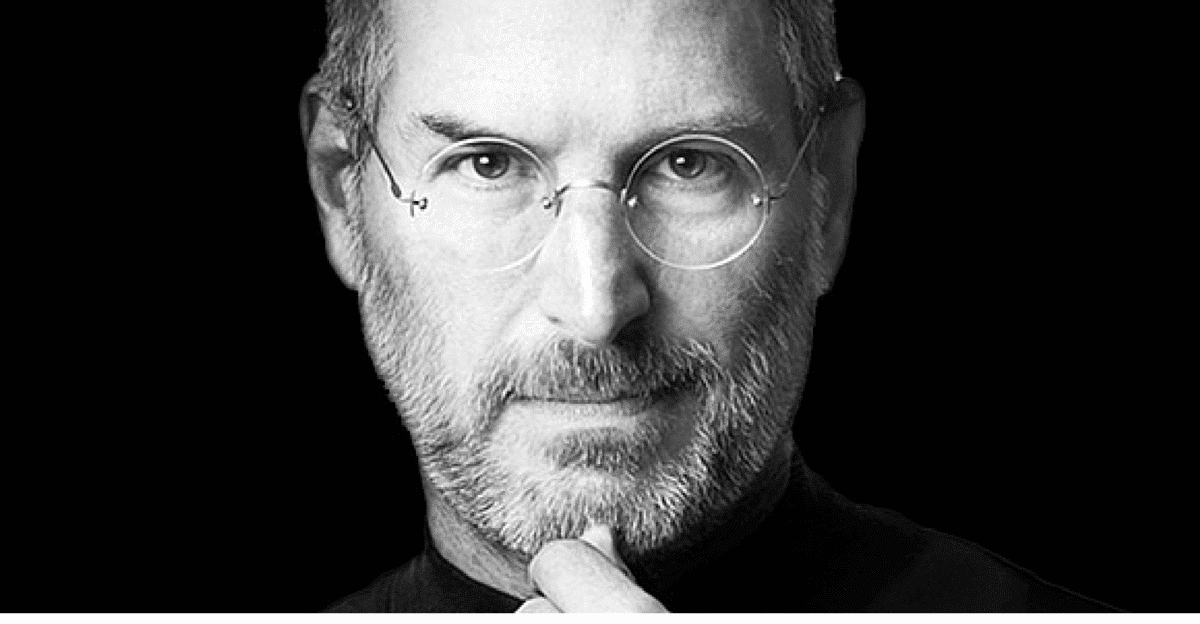Home » 8 Lessons For Employers to Learn From Steve Jobs
Friday, September 13th, 2019
Steve Jobs’ passing will have been 5 years ago as of October 5, 2016. Having died at age 56, he didn’t live a particularly long life, yet there was no shortage to his accomplishments. Jobs cofounded Apple in 1976, was worth about $100 million by age 25, founded NeXT and Pixar after his dismissal from Apple in 1985, brought Apple back from near bankruptcy when he returned in 1997, and from there built it up to be the most valuable company in the world. Throughout this time he helped transform music, phones, tablet computing, personal computing, animated movies, retail stores, and digital publishing. Clearly, he knew how to innovate and run a successful business.
While no one could replace Steve Jobs, we can all learn from his advice and example. Here are 8 lessons from Steve Jobs particularly applicable to employers.
You can’t do it alone
Despite Jobs’ reputation of being a brutally honest and sometimes harsh guy to work with, he truly valued his employees and what they contributed to Apple. He learned that he couldn’t do everything alone. He needed the help of other amazing people to make great things happen. He said,
“My model for business is The Beatles. They were four guys who kept each other’s kind of negative tendencies in check. They balanced each other, and the total was greater than the sum of the parts. That’s how I see business: Great things in business are never done by one person, they’re done by a team of people.”
Don’t just beat your competition. Jump the curb.
Steve Jobs was king of not just catching up with or slightly outdoing his competition, but redefining the game. The original iMac’s strong points were with photos and videos, but it was behind the game when it came to music. At the time, PC’s could be used to download music and burn CDs, but the iMac’s slot drive didn’t have that capability. Jobs said, “I felt like a dope. I thought we had missed it.” But instead of just upgrading the iMac’s CD drive, Jobs saw the opportunity to completely outdo his competitors with an integrated system consisting of iTunes, the iTunes Store, and the iPod. This transformative innovation completely changed the music industry by allowing people to buy, share, manage, store, and play music in a new and better way than ever before.
Don’t just meet your competition where they’re at. Blow them out of the water with something 5 steps ahead.
Don’t try to do too much at once.
Shortly before he died, Steve received a visit in his home from Google’s Larry Page. Jobs’ advice to Page illustrated his belief that it’s best to focus on just a few things at a time, and not spread yourself too thin. “The main thing I stressed was focus,” Steve recalled. “Figure out what Google wants to be when it grows up. It’s now all over the map. What are the five products you want to focus on? Get rid of the rest, because they’re dragging you down. They’re turning you into Microsoft. They’re causing you to turn out products that are adequate but not great.” By honing in on just a few things at once, you’re able to do higher quality work with those products and really make them “beautiful.”
Especially for a big company, it can be hard to narrow your to-do list down to just a few priorities. However, this elimination process is crucial. Jobs said, “Deciding what not to do is as important as deciding what to do. That’s true for companies, and it’s true for products.”
Filter out distractions and focus on making a few things great.
Presentation matters.
The quality and price of your product are not the only things that matter. Design and presentation still count! Whether we like to admit it or not, we tend to judge books by their covers. If a product is presented and packaged with a pleasing design, it will be better received. Jobs took great care in the design of everything Apple created, down to the boxes for iPods and iPads. He said, “When you open the box of an iPhone or iPad, we want that tactile experience to set the tone for how you perceive the product. ”
Simplify, simplify, simplify.
Related to focus, Jobs had an incredible ability to simplify products even more than thought possible, making them extremely user-friendly yet sophisticated. Apple is known for being intuitive, uncluttered, and straightforward. This simplicity was not accomplished by just avoiding complexity, but rather by paying attention to each detail and consciously eliminating the unnecessary. This kind of simplicity makes a computer seem friendly, unintimidating, and welcoming. Jobs said, ““It takes a lot of hard work to make something simple, to truly understand the underlying challenges and come up with elegant solutions.”
Customers don’t know what they need.
One of Jobs’ most quoted lines is, “A lot of times, people don’t know what they want until you show it to them.” He was convinced that market research and focus groups were a waste of time when looking for new ideas. He often quoted Henry Ford when he said, “If I’d asked customers what they wanted, they would have told me, ‘A faster horse!’” Jobs believed that the best and most successful ideas come from those who are able to use intuition and instinct to identify problems that need solving, and then do something about it before anyone else. He often relied on intuition to guide his decisions, and he felt like it never led him astray.
Another of Jobs’ approaches to forming ideas was to make products that he and his friends wanted. If there was something he really wanted, chances are other people would too. For example, he thought the available portable music devices around the year 2000 weren’t good enough; he wanted something small that would hold thousands of songs. “We made the iPod for ourselves,” he said, “and when you’re doing something for yourself, or your best friend or family, you’re not going to cheese out.”
Hire and tolerate only the best.
One key to Apple’s success is their standard of only hiring “A players.” Jobs was a perfectionist and only wanted to work with the best. He took the time necessary to really evaluate potential hires and weed out the candidates who were not A players. Why is this so important? Because A players don’t want to work with B players, and B players will hire B or C players, not A players. Tolerating mediocrity would lead to what Jobs called the “Bozo Explosion,” an ever increasing number of bozos at the company.
What if a B or C player slipped through the cracks and got hired at Apple? Jobs was brutally honest with his employees about their work. If something sucked, he told them so; he wasn’t concerned with being nice. By being straightforward with people, it prevented C performers that couldn’t keep up from sticking around.
Note: While Jobs was known for some rudeness, he was also inspirational. He made his employees believe they could accomplish amazing things. There was a low turnover rate among his employees, and they were loyal to Apple. Roughness alone was not what drove Jobs’ results. “I’ve learned over the years that when you have really good people, you don’t have to baby them,” said Jobs. “By expecting them to do great things, you can get them to do great things. Ask any member of that Mac team. They will tell you it was worth the pain.”
Avoid the trap of thinking you have something to lose.
“Remembering that you are going to die is the best way I know to avoid the trap of thinking you have something to lose. You are already naked. There is no reason not to follow your heart.” This way of thinking was likely intensified later in life when Jobs found out he had cancer, but he learned much earlier that sometimes the seemingly worst possible thing that could happen might turn out to be the best.
One of Jobs’ most devastating moments was getting fired from Apple, a decade after co-founding the company. Apple had been the focus of his adult life, so his humiliating public-dismissal was a big shock. However, he realized he loved what he did, and so instead of dwelling in sorrow he decided to start over. He took the opportunity to start two new companies, NeXT and Pixar. “The heaviness of being successful was replaced by the lightness of being a beginner again. It freed me to enter one of the most creative periods of my life.” He also ended up meeting and falling in love with his wife during that time, which would not have happened had he still been at Apple. Jobs said, “I didn’t see it then, but it turned out that getting fired from Apple was the best thing that could have ever happened to me,” he said.
A few years later, Apple realized they needed Jobs back, which they ended up doing by purchasing NeXT. He pulled Apple away from the brink of bankruptcy and continued on to have an incredible career with the company. “Sometimes life hits you in the head with a brick. Don’t lose faith. I’m convinced that the only thing that kept me going was that I loved what I did. You’ve got to find what you love.”
Originally published on LocalWork





